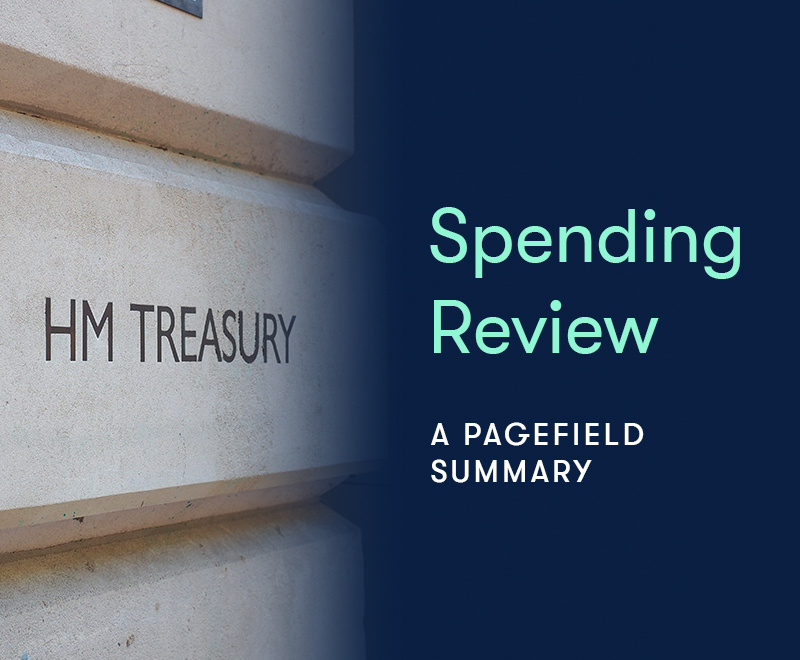In the wake of that election victory, the Conservative Party has been gleefully anticipating the first Conservative Queen’s Speech since John Major’s tenure. Having secured a public mandate, this was our first (albeit heavily trailed) look at how the Tory manifesto would translate into actual planned legislation. Here are the five things we learnt:
Back to basics
The last time a Conservative government delivered a Queen’s Speech, Alan Shearer was the most expensive footballer in the world, Terry Venables had only recently resigned as England Manager, and David Beckham had yet to play for his country. It’s been quite a while. Like England fans waiting for another 1966, the Conservatives have been patiently waiting for a fully Tory policy agenda. They kicked things off with backbench crowd-pleasers like EU reform, a British Bill of Rights and a Trade Unions Bill thrown in, and then moved on to manifesto pledges. In highlights, the Government will follow through on its promise to ensure 7-day access to the NHS (while emphasising mental healthcare – perhaps a Lib Dem relic?), as well as £12bn in much-discussed welfare cuts. Regionally, we will see further cities and local government devolution and constitutional provisions for both Scotland and Wales. These and a swathe of other items are of course plans only, and it remains to be seen whether Tory backbenchers, like England fans, will find themselves disappointed with the results.
Bills, bills, bills
Free from the shackles of coalition, today’s Queen’s Speech was an opportunity for Cameron to deliver a strong statement of intent for a truly conservative blueprint. Cameron has come out guns blazing with two controversial proposals: EU membership and the Human Rights Act.
First up: the British Bill of Rights. This morning’s papers splashed on a retreat from this announcement in that the Government has decided to consult on the proposal rather than pursuing legislation straight off the bat. This is a cautious approach, but reflects the political situation: a conflicted Tory Party and a broad opposition ‘coalition’ favouring the status quo will prove troublesome. No surprise then that Cameron has deployed his fixer-in-chief Michael Gove to take on this challenge.
The other battlefront is of course Europe, in the form of the EU Referendum Bill. Labour’s announcement that they will support a referendum is instrumental, but the Tories still face a fight in winning a referendum if negotiations are unsuccessful, also bearing in mind the expected negative media onslaught. While Cameron seems un-phased by the prospect of managing EU reform and the Human Rights issue together, this will be quite a handful.
There may be trouble ahead
Despite the announcement of a thoroughly Conservative agenda, David Cameron is likely to face a number of obstacles as he attempts to push his legislative programme through Parliament. Let’s not forget Cameron only has a majority of 11, which despite the support of the unionists – who have recently pledged to vote with the Government – could very easily be eroded. The lack of a majority in the Lords is also likely to cause problems, and although the Salisbury Convention should prevent manifesto pledges being blocked in the ‘Other Place’, this relies on a considerable amount of good faith considering how emotive some of the coming legislation may prove. Troublesome Lords combined with demanding backbenchers, potential splits over the EU, a resilient and troublesome SNP, and a potentially resurgent Labour could mean that is not all plain sailing for David Cameron.
No country for Lib Dems
Britain’s experiment with coalition government is over…for now at least. It gave us a mixed bag in terms of policy, and saw the fringes of both parties’ manifestos compromised for a more centrist accommodation. The Tories spent the time bemoaning the suffocating embrace of their partners, while the Liberal Democrats have been busy telling anyone who will listen how effectively they put the brakes on their partners’ more robustly conservative ideas.
The outcome for this parliament is a backlog of pedigree Tory policies which the Liberals would not let pass, and today saw the announcement of several of these, including most notably the Investigatory Powers Bill (read ‘Snooper’s Charter’) and the European Union Referendum Bill. Without the Liberal albatross around their neck, the Conservatives will be hoping they can make some progress on these items, but it remains to be seen whether their slim majority will hold up, particularly when Tory backbenchers are faced with the more interventionist items here. And of course let’s not forget the number of Lib Dems in the House of Lords is significant and as such the Party’s influence should not be underestimated.
Death by a thousand cuts
As the third largest party in Parliament, the SNP have the privilege of responding to the Queen’s Speech after Labour. Nick Clegg will suffer the ignominy of waiting his turn behind the rumbustious SNP contingent before he can respond on behalf of his much-depleted party. SNP Westminster leader Angus ‘Not Alex Salmond’ Robertson has termed the Queen’s Speech an ‘early test’ of the Conservatives’ credentials on devolving more powers to Holyrood, and has emphasised the need for the Scotland Bill to live up to “both the spirit and the letter” of pre-election agreements.
In terms of wider legislation, the Nats have announced their intention not to block Cameron’s big ticket items, but instead to amend proposed bills to achieve small but substantive changes across the piece. This ‘death by a thousand cuts’ approach may seem like a subtle approach, but the SNP are fast realising their 56 MPs may mean less than initially thought, and some of the ‘small’ changes they want to make e.g. a Scottish Brexit veto, are unlikely to seem small to the Tories.



